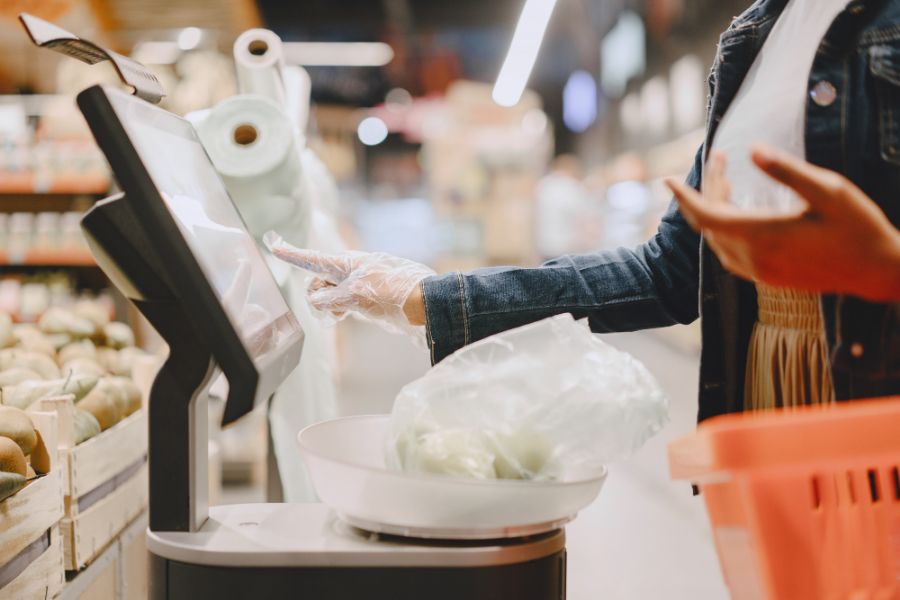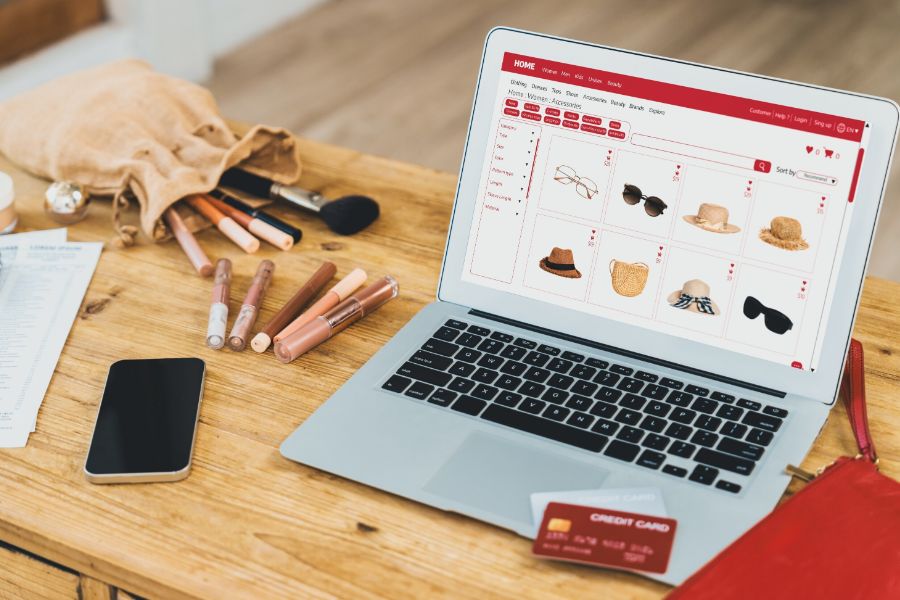The retail landscape is undergoing a remarkable transformation as self-service gains prominence. This article delves into the ascent of customer empowerment through self service in retail. In an era marked by shifting consumer preferences and technological advancements, self-service has become a pivotal force reshaping how customers interact with businesses. From touchscreens for self-checkout to personalized AI-driven experiences, the self-service revolution is empowering customers, streamlining operations, and forging a dynamic path for the future of retail.
The Meaning Of Self Service In Retail
In retail, “self-serve” refers to a customer-centric approach that allows individuals to independently engage in various aspects of their shopping experience without the immediate assistance of store staff. This concept has become increasingly prevalent with the advent of technological advancements and evolving consumer preferences. Self-serve retail can encompass a multitude of activities, such as product discovery, checkout processes, and inventory management, all of which aim to provide customers with greater control, convenience, and efficiency during their shopping journey.
As of December 2019, 47% of consumers in the US claimed that they regularly used self-service checkouts, while a further 31 percent of consumers had at some point used a self-service checkout. This data illustrates the growing prevalence of technologies for self service in retail landscape and underscores the shifting consumer preferences towards greater autonomy and convenience in their shopping experiences.
One of the most notable applications of self-serve in retail is self-checkout, where customers can scan, bag, and pay for their selected items without the need for a cashier. Additionally, interactive kiosks, mobile apps, and digital displays empower shoppers to explore products, access detailed information, and even place orders for out-of-stock items independently.
This approach not only enhances customer autonomy but also offers benefits to retailers, including reduced labor costs, streamlined operations, and the collection of valuable data for improved marketing and personalization. Self service in retail underscores the importance of adapting to the changing landscape of consumer preferences and technology, ultimately enhancing the overall shopping experience.
Why Should Retailers Choose Self Service In Retail?
The adoption of self service in retail carries multifaceted advantages that extend beyond the immediate benefits, making it a strategically sound decision for retailers seeking to thrive in a dynamic market environment. Here’s a more comprehensive exploration of these reasons:
- Health and Safety: In the wake of the COVID-19 pandemic, the health and safety of both customers and staff have taken center stage. Self-service options, such as touchless payment methods and self-checkout kiosks, significantly mitigate physical contact between customers and cashiers. By reducing the need for face-to-face interactions, retailers not only assure health-conscious shoppers but also exhibit a strong commitment to providing a safe shopping environment. This builds trust and fosters customer loyalty, encouraging them to return confidently.
- Speed: Time is a precious commodity for modern consumers, and self-service excels in delivering time efficiency. Customers can swiftly scan and pay for their items, eliminating the frustration of long checkout lines and wait times. In response, customer satisfaction is elevated, as shoppers appreciate the convenience and efficiency of the self-service experience. For retailers, this translates into increased throughput, allowing them to serve a larger volume of customers in a shorter time frame, ultimately driving revenue and reducing operational costs.
- Novel Shopping Experiences: Self service in retail transforms the experience into an engaging and interactive journey. Through touch-screen kiosks, customers can explore products independently, view detailed information, and even experiment with augmented reality features. These innovative and immersive interactions cater to tech-savvy consumers, differentiating the retailer in a competitive market. Novel shopping experiences can pique curiosity, spark interest, and create memorable moments for customers, potentially bolstering sales and brand loyalty.
- Customer Data: The systems of self service in retail serve as valuable data collection tools, yielding a treasure trove of customer information. These systems capture purchase histories, browsing patterns, and individual preferences. Retailers can leverage this data to create highly targeted and personalized marketing efforts. By tailoring promotions and recommendations based on customer behavior, retailers increase the relevance of their offerings. Moreover, by making data-driven decisions, retailers optimize inventory, pricing, and product placements, thus enhancing the overall shopping experience and fostering customer loyalty.
Overall, retailers should choose self service in retail not only for the immediate benefits of health and safety, speed, and novel experiences but also for the long-term advantages of collecting and leveraging valuable customer data. This multifaceted approach enhances both the customer’s shopping journey and the retailer’s operational efficiency, resulting in a win-win scenario for all stakeholders.
Top Ideas To Try Self Service In Retail For Your Retail Business
Touchscreens For Self-Checkout
Incorporating touchscreens for self-checkout is a forward-thinking strategy within the realm of self service in retail that elevates the shopping experience for both customers and retailers. These user-friendly kiosks empower shoppers to independently engage in the self-service process by scanning, bagging, and paying for their items, significantly reducing wait times and enhancing overall operational efficiency.
Retailers benefit from streamlined operations, with the potential to allocate staff to more value-added tasks. This approach not only caters to the growing preference for self-reliance among modern consumers but also demonstrates adaptability by accommodating various payment methods. In a fast-paced retail landscape, touchscreens for self-checkout are an essential component of a frictionless and customer-centric shopping journey.
Interactive Screens For Information
Another innovative way for retailers to harness the technology for self service in retail that is within their physical stores is by incorporating interactive screens. These screens don’t primarily serve as payment and checkout stations but are rather dedicated to providing valuable information to customers. For instance, in the case of large stores, such as furniture outlets, the introduction of indoor mapping via interactive screens can be particularly beneficial. This feature offers a spatial visualization of the store, making it effortless for customers to navigate and locate specific sections or products within the vast retail space.
Smaller retailers can also benefit from self-serve technology in the form of price-check screens, allowing customers to scan product barcodes and swiftly access pricing details, aiding them in making informed purchasing decisions.
Additionally, retailers can consider installing interactive screens that provide comprehensive product information, complete with customer reviews, ratings, and usage guides, further enriching the in-store shopping experience. This diverse array of interactive screen applications underscores the adaptability and potential of self-serve technology in enhancing customer engagement and satisfaction within the retail environment.
Self-Serve Kiosks
Leveraging self-serve kiosks is a game-changing strategy for retailers seeking to empower their customers with autonomy and streamline in-store operations. These kiosks offer a wide range of functionalities, from enabling self-checkout to providing an interactive platform for product exploration and even facilitating orders for out-of-stock items.
With self-serve kiosks, customers can independently navigate product catalogs, access essential information, and make purchases without the need for direct staff intervention. This not only enhances the customer experience by reducing wait times and promoting convenience but also frees up staff to focus on more complex customer inquiries and high-value service tasks.
The adaptability and versatility of self-serve kiosks make them a pivotal component in modern retail strategies, ensuring retailers stay at the forefront of the ever-evolving consumer landscape. ConnectPOS, with its comprehensive self-service POS system, is a prime example of how technology can be harnessed to deliver a seamless and efficient self-service retail experience.
Micro-Markets
The concept of micro-markets has gained significant momentum of self service in retail. These small, self-contained retail spaces are often found within larger facilities, such as corporate offices, fitness centers, or educational campuses. Micro-markets offer a curated selection of products, ranging from snacks and beverages to fresh food and everyday essentials.
What sets micro-markets apart is the convenience and accessibility they provide. These self-service retail spaces are often open 24/7, allowing individuals to shop at their convenience. Customers can browse the products, select items, and make payments using self-checkout kiosks or other self-service technology.
Micro-markets not only cater to busy, on-the-go individuals who appreciate the ease of self-service shopping but also provide a unique opportunity for businesses to enhance the overall experience for their employees or visitors. The concept aligns with the modern emphasis on self-reliance and personalized experiences, making it a valuable addition to the evolving retail self-service landscape.
Pop-Up Shops
Pop-up shops represent a dynamic and versatile approach to self service in retail world. These temporary retail spaces are often set up in unconventional or high-traffic locations, such as vacant storefronts, street markets, festivals, or special events. The distinguishing feature of pop-up shops is their agility and adaptability.
One of the key applications of self-service in pop-up shops is the use of interactive kiosks and digital displays. These technologies create engaging and memorable shopping experiences for customers who encounter the temporary store. Customers can explore products, access information, and even make purchases through self-service touchscreens or mobile apps, all without the need for constant staff assistance.
By utilizing self-service technology in pop-up shops, retailers can quickly showcase their products or services, create buzz, and interact with a diverse customer base. This approach enables businesses to capitalize on high-traffic locations and maximize their reach. Pop-up shops are a testament to the flexibility and creativity that the technology of self service in retail brings to the retail landscape, offering unique and immersive shopping experiences that captivate customers in unconventional settings.
Personalization Through AI
The global market for the use of Artificial Intelligence (AI) in retail was valued at approximately 4.84 billion U.S. dollars in 2021 and is estimated to grow continually over the next eight-year period. It is projected to reach 31.18 billion U.S. dollars by 2028, underlining the significant and ongoing expansion of AI’s role in the retail sector. This robust growth reflects the increasing recognition of AI’s potential in shaping the future of retail and its capacity to drive customer engagement, sales, and loyalty through personalized, data-driven strategies.
AI-powered personalization is a transformative strategy that enhances self service in retail by tailoring product recommendations and promotions to individual customer preferences. This data-driven approach not only fosters deeper customer engagement but also drives sales and bolsters customer loyalty. By delivering personalized content through self-service channels, such as interactive screens or mobile apps, retailers create a dynamic and individualized shopping experience that resonates with tech-savvy consumers, while also collecting valuable data for more informed decision-making.
When discussing personalization through AI, it is impossible not to mention ConnectPOS. Notably, ConnectPOS stands out with its innovative second-screen feature, which maximizes the retailer’s AI image and optimizes customer personalization.
Instant Discounts
For brick-and-mortar stores whose customer base might be somewhat hesitant about embracing options for self service in retail, particularly among elderly clients who might not be fully comfortable with modern devices, a prudent approach is to test a hybrid system that combines the strengths of human sales staff with self-service technologies. One effective strategy for encouraging customers to dip their toes into self-service is offering enticing incentives, such as instant discounts for utilizing the self-serve option. The prospect of saving a few dollars can serve as a compelling motivator, even for those buyers who may typically be less inclined to embrace technological innovations.
Conclusion
Self service in retail is not merely a trend but a fundamental shift that places customers at the helm of their shopping journeys. It offers a myriad of benefits, including efficiency, convenience, and data-driven personalization. As retailers embrace this evolution, they not only meet the demands of modern consumers but also propel their businesses into a more customer-centric and adaptive future. The rise of customer empowerment through self-service heralds an exciting era where technology and consumer autonomy converge to shape the retail landscape. If you want to know more about this information, please contact us for more information



